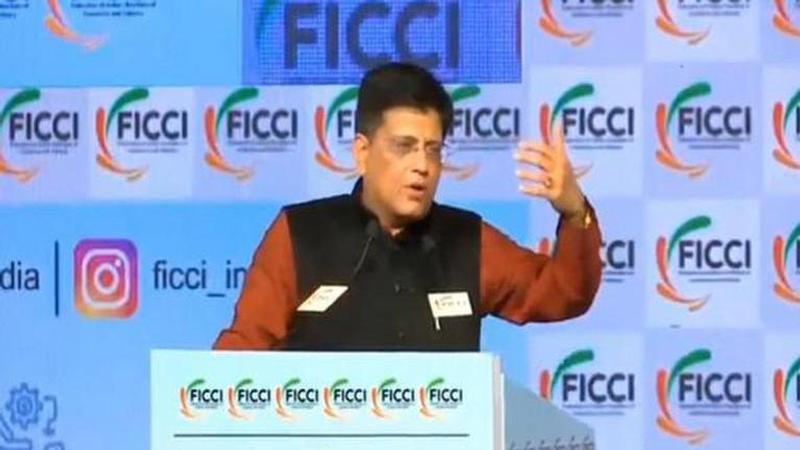Published 16:07 IST, December 20th 2019
Union Minister Piyush Goyal praises PM Modi for pulling India out of RCEP
Union Minister Piyush Goyal on Friday praised PM Narendra Modi's decision to opt-out of the RCEP agreement. He also called it to be India-China's FTA

Union Minister for Commerce and Industry Piyush Goyal on Friday has praised Prime Minister Narendra Modi for India's decision to exit from the Regional Comprehensive Economic Partnership (RCEP). He also called the RCEP to be nothing more than a free trade agreement (FTA) between India and China. "RCEP was nothing but an India-China FTA. Prime Minister Narendra Modiji was truly very courageous in taking the bold decision to not join the RCEP. His conscience did not allow him to sign an agreement which is not in the interest of people of India," Piyush Goyal stated while addressing the 92nd FICCI annual convention in Delhi.
During his address at the annual convention, he also emphasised on increased engagement between the government and the industries for faster growth. The Union Minister also called India to be the best place for investment. He said, "It's the place where you get both a competitive edge and a huge domestic market and people aspiring for a better quality of life."
Goyal also called for India to be more competitive. "We need to look and address the problems of the entire value chain. Be it inverted duties, be it dumping, be it unfair subsidies," he added.
During his address in the National Capital, Goyal also added on how the BJP-led Central government does not believe in solving individual company issues but carrying out a root cause analysis and finding sustainable solutions for the issues.
What is the RCEP agreement?
India was on the verge of signing a comprehensive free-trade agreement in the form of RCEP that involves 10 ASEAN countries: Indonesia, Thailand, Singapore, Malaysia, the Philippines, Vietnam, Myanmar, Brunei, Cambodia, Laos, and the six countries these countries have free-trade agreements with - Australia, China, India, Japan, New Zealand, and Korea. This bloc comprises 25 per cent of the world’s Gross Domestic Product, 30 per cent of global trade, and 26 per cent of Foreign Direct Investment (FDI) flows. It aims to reduce the tariffs and quotas on the import and export of products. Since 2013, this agreement is being negotiated. However, many Indian industries are adamantly against the agreement and the changes which it will inflict upon the country’s markets.
(With inputs from ANI)
Updated 17:49 IST, December 20th 2019




